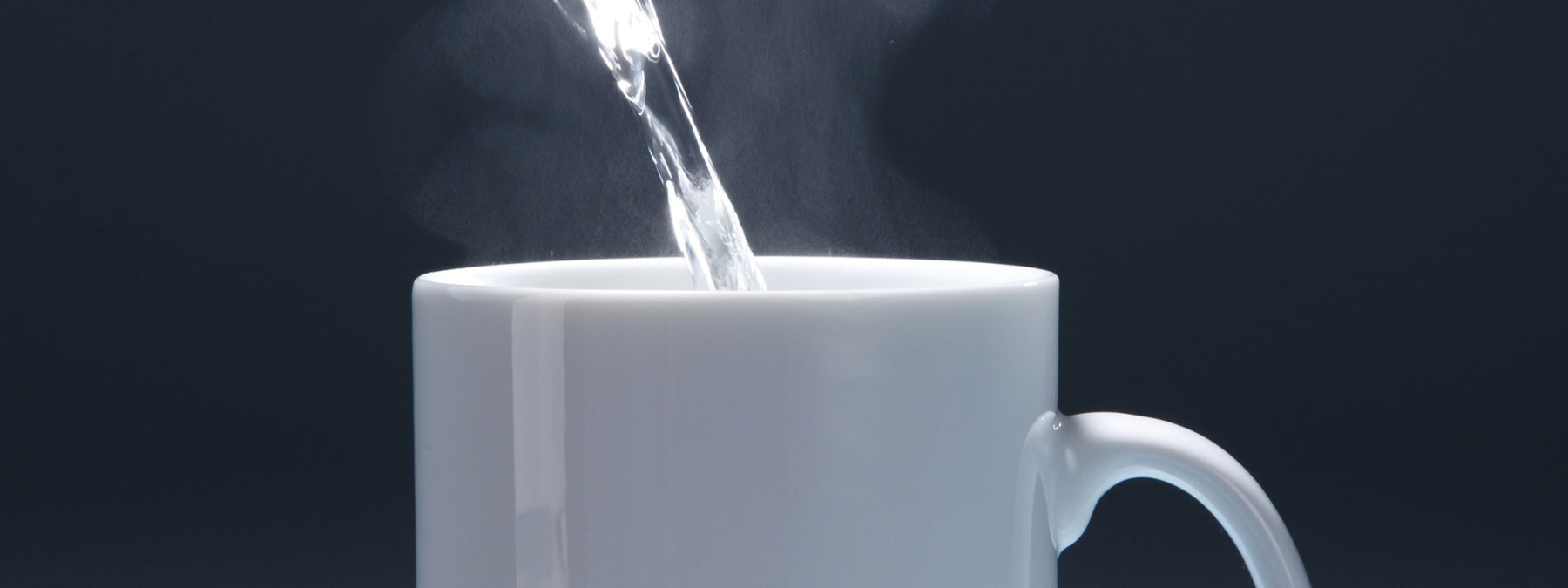Try Them Today
Try Them Today

Water temperature seems to be the new fad du jour, with articles and social media shares popping up everywhere, claiming cold water - or hot water - holds the key to weight loss and disease prevention. Are people running out of health topics to write about, or are any of these proclamations, as they say, “watertight”?
According to so-called “health” websites, which are often fronts for new-age nimroddery and selling untested and unproven herbs and devices, the temperature of your water is a life or death choice. Cold water is a miracle and hot water will kill you! – No, wait. Hot water is a miracle and cold water will kill you!
Related - Water Intake Calculator
On one side, the hype for cold water argues:
On the other side, the warm-water folks say:
When both sides come together to promote water consumption in general, the claims grow to extraordinary proportions, like:
Wow! You’d think if drinking water did all of that, we’d a. all know this by now, and b. Be healthier because of this simple and nearly effortless knowledge. But maybe we are all just screwing up the temperature and canceling out all of water’s miraculous benefits?
It is obvious that some of these things are completely made up, or our cancer wards would be full of fluid drip IVs and water fountains instead of chemotherapy drips and radiation rooms. No one would need an inhaler and you wouldn’t ever see an obese person, unless there was a drought.
Reputable health outlets also push hydration and drinking enough water. So, where does the truth versus fiction line get drawn when it comes to staying hydrated?
Score one for the “cool” water crowd:
Cool water (16 degrees Celsius) absorbs most readily and hydrates the best after intense exercise. [1]
Okay, that’s about it. End of article.
Just kidding. The thing is, like Carl Sagan said, extraordinary claims require extraordinary evidence. Many of these statements have no hard evidence to back them up. When you see articles that list sources from one doctor somewhere who has claimed to find a secret, it’s not credible.
Most of this water research simply relies on nebulous terms like “ancient Ayurveda” or “Eastern medicine.” They cite the long lives of the Japanese or other obscure notions that have no details or explanations.
The other tactic is to cite anecdotal evidence and one small study that concluded much less than the article claims. Statements like “drinking cold water burns more calories than warm water” is only backed up by a very small amount of research and the calories it burns according to the research are negligible. Drinking cold water is not going to cause weight loss.
The majority of research that supports hot and/or cold water making a difference in health outcomes is immersion therapies (i.e., soaks, saunas, ice baths, etc.) There is very little evidence the water you drink should be any other temperature than your preference.
However, hydration is critical to your health and water is one of the best delivery systems.
Water flushes waste through our body, so technically it does aid in digestion and promotes the removal of toxins, though it is really our intestines and organs that do the job.
Water keeps our skin cells moist and full, which helps our looks a bit, but it does not stop the aging process.
Water helps us regulate our body temperature, but does not prevent illness.
Being adequately hydrated assists all of our bodily functions, from small, cellular-level workings, to large-scale actions like bowel regularity and athletic performance. If you are under or over hydrated, it can be damaging – even deadly, so it’s kind of a big deal.
Though, in regards to weight loss, which is the angle most hot and cold water battles spring from, there is insufficient evidence to say that drinking water of any certain temperature assists in that department. Water is often tied to weight loss because when you chose water, you are eliminating calories from sweetened beverages and probably eliminating in the digestive sense more regularly.
Often when we are thirsty, it may feel like hunger. And when we are hungry, we might eat too fast and overdo it. When we drink some water before eating, it can help by staving off thirst and adding to the volume in our stomach, so we slow down and avoid getting too full.
It doesn’t matter whether you drink hot coffee or ice water, or any temperature in between, so long as you are staying hydrated and making good dietary choices. If you are feeling good and your insides are moving and grooving, don’t sweat it.
1) "The Effect of Water Temperature and Voluntary Drinking on the Post Rehydration Sweating." PubMed Central (PMC), www.ncbi.nlm.nih.gov/pmc/articles/PMC3762624/.